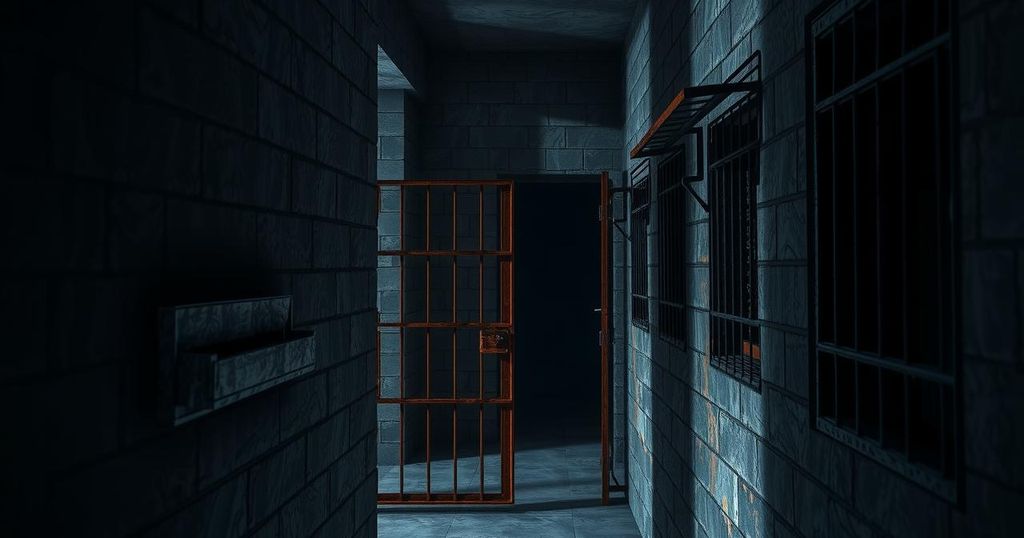Donald Trump’s Immigration Crackdown: A Look Inside El Salvador’s CECOT Prison

President Trump has intensified immigration enforcement by transferring suspected undocumented immigrants to CECOT in El Salvador, despite a court ruling against this action. An agreement with President Bukele allows for a year of detention services in exchange for financial support, as the conditions inside the prison raise human rights concerns about detaining individuals deemed illegal immigrants.
President Donald Trump has initiated a significant crackdown on illegal immigration, resulting in the transfer of hundreds of suspected undocumented individuals to the Terrorism Confinement Center (CECOT) in El Salvador, regarded as one of the world’s most notorious prisons. On March 16, 238 alleged members of Venezuela’s Tren de Aragua gang were dispatched to this facility, despite a federal court ruling against the operation.
This policy follows a recent agreement between Secretary of State Marco Rubio and El Salvador’s President, Nayib Bukele, to provide the United States with a year’s worth of detention services in exchange for $6 million. President Bukele has expressed readiness to incarcerate deportees from the United States, reflecting a cooperative stance on enforcement measures.
Trump publicly thanked El Salvador and President Bukele on social media for their support, linking the situation to what he terms “Democrat leadership” failures that have allowed such immigration issues to escalate in the U.S. Since President Bukele’s administration began in 2019, El Salvador has seen a notable decrease in crime due to a declared state of emergency and the increased presence of police in gang-affected neighborhoods.
Journalist David Culver reported on the grim conditions inside CECOT, where inmates, including former gang leaders, face harsh realities. During his visit, he observed inmates crowded into large cells with little personal space and only minimal exercise time. Culver noted that legal and medical care occurs within the prison, further limiting freedoms. Bukele’s government has controversially dismissed the plight of around 7,000 wrongly imprisoned detainees as ‘collateral damage.’ This grim reality may increasingly affect individuals labeled as ‘illegal immigrants’ in the U.S.
In summary, the recent actions by President Trump to detain alleged undocumented immigrants at CECOT in El Salvador reflect a continuing approach to stringent immigration enforcement. The arrangement with El Salvador and the notable decrease in crime since Bukele’s rise to power are highlighted. Nevertheless, the disturbing conditions reported within the prison raise significant human rights concerns, amid assertions of collateral damage from those wrongfully imprisoned. These developments may foreshadow a more severe reality for undocumented individuals in the United States.
Original Source: www.ladbible.com







